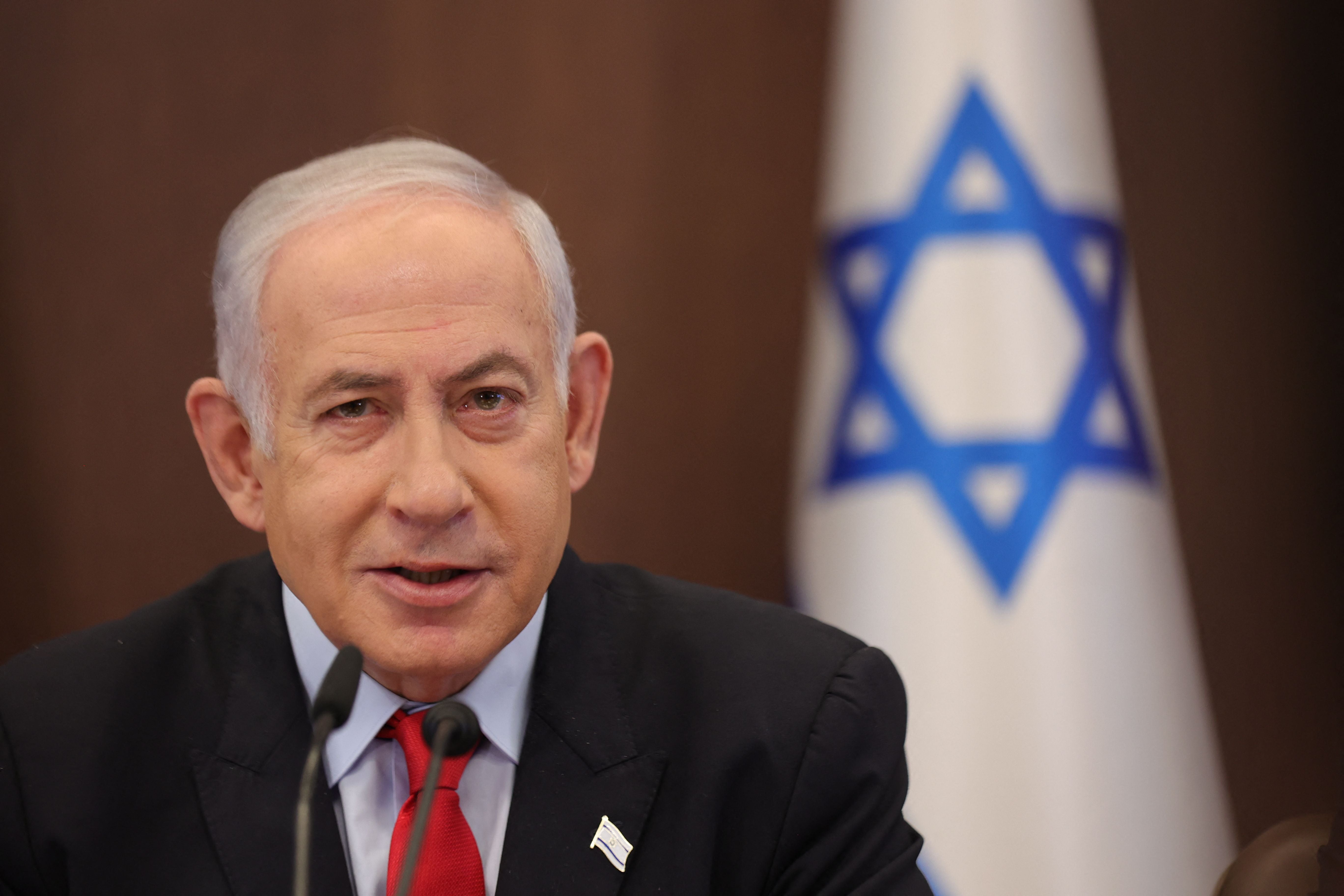The Independent's journalism is supported by our readers. When you purchase through links on our site, we may earn commission.
Is Israel planning something other than a full-on invasion of Gaza?
Once Joe Biden’s hastily arranged visit to the Middle East is over, Benjamin Netyanyahu is free to launch… what exactly, if not the much-anticipated ground attack, asks Donald Macintyre


It gets to them all in the end. From Harry Truman on, the large majority of US presidents have become embroiled in the Israeli-Palestinian conflict. Even before Russia’s unprovoked invasion of Ukraine rightly became a primary focus in Washington, Biden – though a long-term supporter of Israel – seemed to break the mould.
While conditions on the ground were becoming progressively worse, there was so little hope of any peace process, with Israeli politics moving steadily towards the ultra-nationalist right and the woeful lack of coherent Palestinian leadership, it seemed better to stay out of it.
Yet, on Wednesday, Biden will be making the most fraught and hastily arranged visit of his presidency, to Israel, and in the middle of a war with Hamas that threatens, as the previous four wars in Gaza did not, to ignite a much wider regional conflict.
It is a bold gamble. Among much else, it means granting vitally necessary talks, face-to-face – presumably along with the required photo-op – with Benjamin Netanyahu.
Biden has known the Israeli prime minister for decades but has become increasingly vexed by him – not least because of Netanyahu’s self-serving and bitterly divisive campaign to neuter Israel’s Supreme Court. And now he will be dealing with a man whose political survival is threatened by the intelligence and military failures that preceded Hamas’s appalling atrocities on 7 October. More importantly, it could risk tying him to the highly unpredictable consequences of the massive ground invasion that Israel has been planning.
The White House clearly decided, however, that the multiple functions it could fulfil outweighed the dangers. The first of these, of course, is to show solidarity with Israel and to demonstrate that Biden has her back in going after, as he said last week, “a group of people who have engaged in barbarism that is as consequential as the Holocaust”.
Another is the plight of the hostages held by Hamas, in which the US has a direct as well as wider humanitarian interest because several – perhaps 20 – are American. As more gruesome details of Hamas’s onslaught on the villages and kibbutzim close to the border emerge each day, so does information on the number of hostages now in Gaza: 199 at last count, among them elderly people, women and children.
And the president will no doubt want to advance the plans referred to by Anthony Blinken, the US secretary of state, on Tuesday to channel desperately needed aid through the southern Rafah crossing, to alleviate a mounting humanitarian catastrophe worse than anything so far seen inside Gaza.
But, above all, the president will want to prevent escalation of the conflict. Within Israel and the occupied territories, it already threatens to do so. But Biden’s principal concern will be that Hezbollah, the Lebanese militant group that is an Iranian proxy, will seek to widen the conflict, perhaps involving Iran itself – an eventuality that is partly what the two US Navy aircraft carrier groups have been dispatched to the Eastern Mediterranean to contain.
All of which – very much including the fate of the hostages – is relevant to the questions which Biden will surely want answered on what Israel’s strategy is overall, and what achievements – and consequences – it expects from a ground invasion, in preparation for which a massive force of some 360,000 reservists have been assembled on the border.
Has it considered the impact on Israeli society of potentially large numbers of casualties among Israeli soldiers – or of many more thousands of Palestinian civilian ones on Israel’s standing in the world? Since the stated purpose is to eliminate Hamas, whose defences include hundreds of kilometres of tunnels and underground bunkers, how do they propose to do that without being dragged into the long-term occupation of Gaza that Israel’s military has long been anxious to avoid – and which Biden himself explicitly warned last week would be a “big mistake”.
The recent comment by Joseph Nagel, a former top lieutenant of Netanyahu’s – that “I used to say ‘Think, then act’, but that the Hamas atrocities changed all the rules of play” – is understandable, given the trauma they inflicted on the Israeli public. But as Biden knows only too well from Afghanistan and perhaps Iraq, that is no recipe for a successful exit strategy.
In a powerful New York Times op-ed yesterday, Thomas L Friedman, who has discussed the Middle East with Joe Biden far more than other commentators, vigorously questioned the wisdom of a ground invasion. He pointed out that US containment of al-Qaeda and Islamic State had required “patience, precision”, and the nurture of alternatives in the societies from which its young adherents come; and that a ground invasion would “blow apart” reconciliation between Arab states and Israel – and that Israeli boots on the ground might be just what Hamas and Hezbollah might want to set the region on fire.
And Friedman added: “If Israel were to announce today that it has decided, for now, to forgo an invasion of Gaza, and will look for more surgical means to eliminate or capture Hamas’s leadership while trying to engineer a trade for the more than 150 Israeli and other hostages… it would not only avoid further traumatising its own society, as well as Palestinian civilians in Gaza; it would also give Israel and its allies time to think through how to build — with Palestinians — a legitimate alternative to Hamas.”
Any ground invasion will, of course, at least await Biden’s departure from the region, for security as well as political reasons. There were opaque indications on Tuesday from the Israeli military that a ground invasion was not the only option, and it could be “something else”. Is it too much to hope that the US president will use his visit to de-escalate this perilous crisis, not least by taking the planned ground invasion off the table for the foreseeable future?
Join our commenting forum
Join thought-provoking conversations, follow other Independent readers and see their replies
Comments



Bookmark popover
Removed from bookmarks